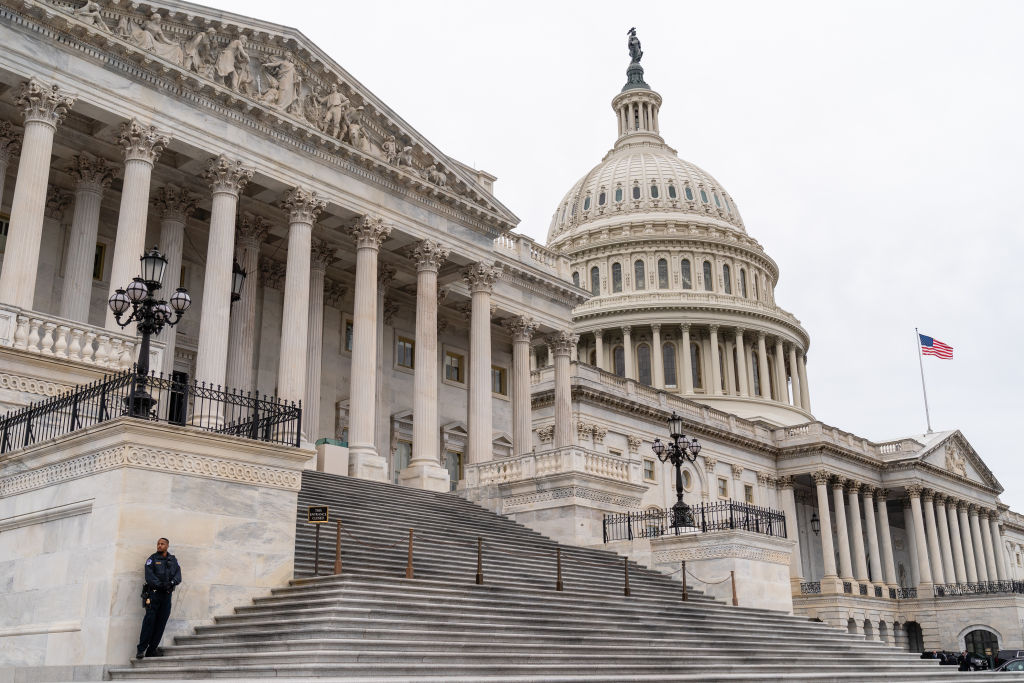
America’s civic education crisis is not new, but it is becoming increasingly dire. New data released by the Department of Education—known as the Nation’s Report Card and widely regarded as the best assessment of how well we are educating our future citizens—paints a stark and worrying picture. Eighth graders scored worse on the history section this year than in in any year since the test was first administered on the subject in 1994, and civics scores dropped for the first time since it was first tested in 1998, with less than one in every four students scoring proficient.
The political polarization that poisons our politics is only deepening this crisis. When our political leaders wage “school wars” over what historical models can and cannot be taught in the classroom, they signal to students that certain views are simply not worth considering. When our media promote the loudest and most antagonistic voices, students learn that shouting is more effective than listening. And when parents refuse to engage arguments with which they disagree, students come to believe that listening to opposing viewpoints is a sign of weakness rather than civic strength. Small wonder, then, that according to one recent UCLA-UC Riverside study, more than two-thirds of high school principals reported substantial political conflict over hot-button issues inside their classrooms.
If we fail to teach our children the principles of our democracy and the habits of civil dialogue necessary to sustaining it, we will endanger the American project. Instead of building a better future by finding common ground, they will only slide deeper into partisanship and extremism.
Read More: Parents Should Have a Voice in Their Kids’ Education, But We’ve Gone Too Far
Fortunately, there is a way out, but it requires a new way of thinking about civic education. To solve this educational crisis, we need to teach students not just history and civics, but the virtues of democratic citizenship, beginning with the ability to consider arguments with which we disagree and to engage in dialogue and deliberation with people with views different from our own. In practice, this means giving students a rigorously non-partisan education in American history and civics, including exposing them to the best arguments on all sides of the major constitutional debates past and present and giving them the tools to make up their own minds.
At the founding, leading framers including George Washington and James Madison dreamed of a national university that would bring together young Americans of different perspectives and backgrounds to teach the habits of deliberation and the core civic knowledge necessary to informed citizenship. They never built this institution, but technology makes it possible for us to do so today.
For example, our organizations are partnering to create a free online Constitution 101 course premised on a simple, radical act: bringing together genuine experts who genuinely disagree about the most important constitutional issues facing our nation today and using their examples to model thoughtful, respectful civil dialogue. With a “faculty” composed of leading conservative and liberal historians, constitutional scholars, judges, and public servants, our course will teach students America’s constitutional principles using primary sources spanning American history, including Supreme Court decisions and the dissents. By being exposed to ideas across the ideological spectrum, students will have the content and the space to consider America’s past and present from multiple perspectives and then reach their own conclusions.
There is already evidence that this approach works. In research conducted during a pilot phase of this new course, we found that 20% of students reported an increased desire to engage in difficult conversations both inside and outside their classrooms.
Of course, this new educational model cannot work alone. Members of Congress and the media, among others, need to commit to having civil dialogue with their ideological opponents. It will take all the adults in the room to show our young citizens that compromise and deliberation are not vestiges of their grandparents’ America.
As we approach America’s 250th birthday in 2026, we have the opportunity to reverse our civics spiral and revitalize knowledge of the ideals, rooted in the Declaration of Independence and the Constitution, that unite us. It will be up to all of us—students and parents, teachers and senators—to rise to the challenge.
More Must-Reads from TIME
- Cybersecurity Experts Are Sounding the Alarm on DOGE
- Meet the 2025 Women of the Year
- The Harsh Truth About Disability Inclusion
- Why Do More Young Adults Have Cancer?
- Colman Domingo Leads With Radical Love
- How to Get Better at Doing Things Alone
- Michelle Zauner Stares Down the Darkness
Contact us at letters@time.com